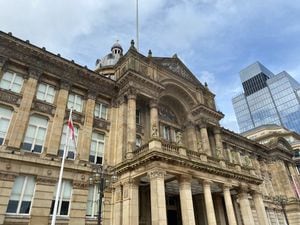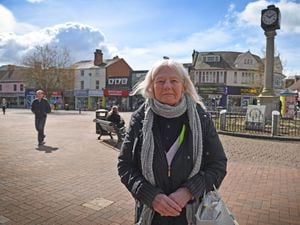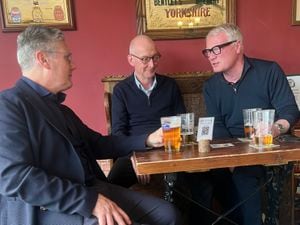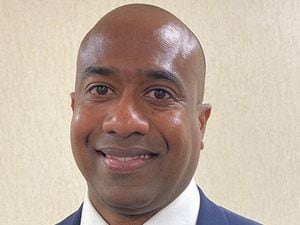West Midlands Mayor Andy Street: 'We can benefit from weakened government'
Andy Street insisted that the West Midlands can benefit from Theresa May's 'weakened' Government as he commemorated his first 100 days as the region's mayor.

The former John Lewis managing director says the Conservatives less than impressive showing at the snap General Election was the biggest shock of his short tenure so far.
And considering how much stock he places in the belief that having the ear of central government is crucial when it comes to securing investment for the West Midlands, it would be easy to assume that Tories reduced majority has made his job a lot more difficult.
"Of course I was surprised by the result and on the night of June 8 when I saw the exit poll my first thought was 'oh my goodness, what are we going to do?'," he tells me.
"I thought it would make things difficult, but I see it as an opportunity rather than a problem.
"The weakened government really need examples of good practice when it comes to delivery on the ground.
"We are saying to them 'we will deliver for you practically'. They have really got to back the places that can deliver and it is up to us to use that to our advantage."
Gauging the success of a politician over 100 days is often derided as an arbitrary measure, yet Mr Street took the step of setting himself targets for his bedding in period shortly after his victory in the May 4 election.
They included launching a Mayor's Mentors scheme to help young people find jobs, drawing up a housing action plan and creating a taskforce to tackle rough sleeping on the region's streets.
While his targets are currently in play, he admits that his major challenges - boosting skills across the region and increasing housing - are not going to happen overnight.
"I thought to myself that the 100 days stuff is a bit artificial and the idea was to get the point across in terms of what we are trying to do," he said. "What really matters is what happens over the longer term.
"I've said I want to see the West Midlands have the fastest growing economy in the country and for us to have the biggest increase in pay rates.
"Those are things I want to achieve over the next three years."
Mr Street said his biggest challenge is to improve living standards and social mobility across the region.

For that to happen he says it is 'mission critical' to create a skilled workforce. "We are clear what we need to do regarding transport and I think we will achieve that over time," he tells me.
"But the skills piece will be harder. Our plans will be genuinely transformative and we haven't yet got the Government to commit to the level of funding required."
Mr Street laughs off accusations of being 'Theresa May's ambassador for London', a claim that largely stems from his close working relationship with the Prime Minister.
He maintains he is 'West Midlands first and a Conservative second' and highlights his 'non-partisan' approach as having helped to forge positive links with council leaders on the West Midlands Combined Authority.
"The evidence is very clear," he says. "We are the only mayoral combined authority that has been accepted for a second devolution deal.
"But in our proposals there are lots of things the Government doesn't necessarily agree with, such as further regional control of the M6 Toll.
"I will always fight for what is in our interests, even if it is not necessarily in the interests of the Government. I think having a good relationship with the Government can only be a good thing."
Mr Street accepts that there are still significant numbers of people who are still not sold on the metro mayor role, with critics branding it an unnecessary and costly layer of bureaucracy.
He cites the planned Midland Metro extension through the Black Country as a scheme that 'would simply never happen' if it was not for the combined authority.
"I think the message is beginning to get through that what we are trying to do is to coordinate work across the West Midlands," he said.
"There are people who are not converted but the penny is starting to drop that as a region we are far stronger working together."
Mr Street says he is 'hopeful' that a multi-million pound bid for funding to regenerate brownfield sites will bear fruit, while he admits the region needs to 'quicken the pace' if a target of 25,000 new homes over three years is to be reached.
He said the bid to bring Channel 4 to the West Midlands showed how the region could 'come together' to work on large scale schemes.
"I think I have shown that I know how to put a team together and have that power to convince people," he said.
"I would hope people will say that by now they know what my approach to all of this is going to be."





